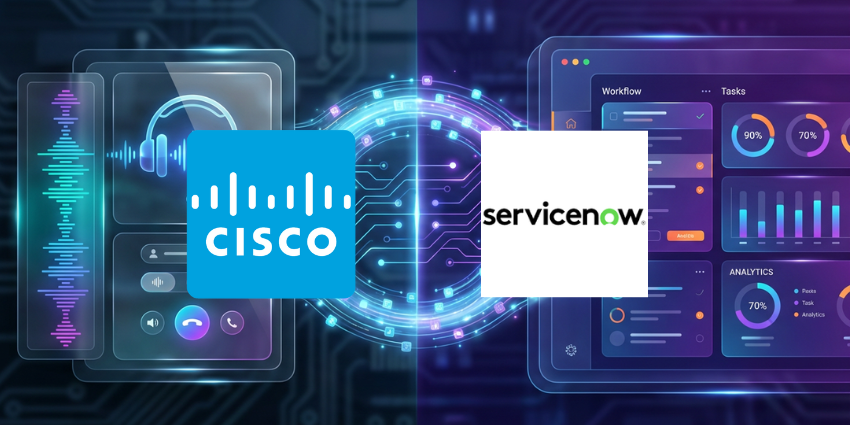Does your customer service team demonstrate a willingness to learn? With technologies, products, and customer expectations changing so fast, you need to be a fast learner. Read on to know how you can develop this essential quality.
What Does Willingness to Learn Mean for CX?
Willingness to learn encompasses a fundamental attitude and approach crucial for personal and professional growth. It represents a mindset characterized by openness, curiosity, and a proactive eagerness to acquire new knowledge, skills, or perspectives.
At its core, this willingness is about embracing continuous learning as a lifelong journey rather than a finite destination. Customer service agents with a strong willingness to learn exhibit several key traits. They are open-minded, receptive to feedback, and unafraid of challenges or unfamiliar territory.
In the context of customer experiences, a strong willingness to learn is crucial for businesses. It allows them to stay agile and responsive to changing customer needs – through new techniques, technologies, and products.
7 Steps to Cultivate a Willingness to Learn
It’s one thing to establish mandatory training programs where everyone must participate. It’s another thing altogether to develop an intrinsic willingness to learn new things among team members. Here are seven practices that can help:
- Create learning challenges
Develop periodic challenges or puzzles related to customer service scenarios or industry knowledge. Encourage agents to participate voluntarily and offer recognition or small rewards for those who actively engage and demonstrate learning progress.
- Implement learning sprints
Dedicate short, focused periods of time (e.g., one week) where agents can intensely focus on learning a new skill or deepening their understanding of a specific aspect of customer service. Set clear goals and provide support resources to facilitate their learning journey.
- Celebrate learning milestones
Acknowledge and celebrate agents’ achievements in learning and development. Create a “learning wall” or digital platform where agents can showcase their certifications, completed courses, or innovative ideas. Publicly recognize their efforts during team meetings or through internal communications.
- Integrate learning into performance reviews
Link learning initiatives directly to performance evaluations. Include metrics related to training completion, knowledge acquisition, or feedback incorporation in performance assessments. This reinforces the importance of continuous learning as a core competency.
- Encourage personal projects
Allow agents to propose and work on personal learning projects related to improving customer service or operational efficiency. This could include researching new tools, implementing process improvements, or conducting customer satisfaction surveys to gather insights.
- Experiment with reverse mentoring
Pair experienced agents with newer recruits for reverse mentoring sessions. Younger or less experienced agents can share insights on new technologies, social media trends, or customer behavior patterns while gaining mentorship on traditional customer service skills from senior agents.
- Lead by example
Leaders and managers should embody a willingness to learn themselves. Encourage executives and supervisors to participate in training programs, seek feedback, and demonstrate a growth mindset. Their example will inspire and motivate agents to prioritize learning and development.
How Technology Can Support Agents’ Willingness to Learn
Technology can really boost your willingness to learn as a customer service agent. Imagine having instant access to a treasure trove of information right at your fingertips! With powerful tools like AI-driven search and knowledge systems, you can quickly find solutions to tricky customer questions, turning each interaction into a learning opportunity.
Interactive learning platforms make it fun and engaging to develop new skills. Picture watching videos, trying out simulations, and taking quizzes—all designed to help you improve and grow. These tools give you instant feedback so you can track your progress and keep getting better.
What’s more, technology can tailor learning just for you. By analyzing how you work and what you need, artificial intelligence (AI) can suggest personalized training that fits your goals and interests. It’s like having a personal coach, guiding you to become the best agent you can be.
5 Reasons Why a Willingness to Learn is Crucial for CX Professionals
CX professionals need to hone a lifelong willingness to learn to achieve:
- Adaptability to customer needs: Customer preferences and expectations are constantly evolving. A willingness to learn allows CX professionals to stay agile and adapt their strategies and approaches to meet changing customer demands effectively.
- Effective problem solving: Complex customer issues often require CX professionals to think critically and find solutions promptly. A willingness to learn equips professionals with diverse knowledge and skills that they can apply to analyze problems from multiple angles and devise effective solutions.
- Enhanced empathy and customer understanding: Learning cultivates empathy by exposing CX professionals to diverse perspectives and customer scenarios. As they broaden their understanding through learning, they can better empathize with customers’ challenges and emotions.
- Effective utilization of emerging technologies: In the rapidly evolving landscape of customer service technology, a willingness to learn allows CX professionals to master new tools and platforms like AI, chatbots, and analytics.
- Cultural sensitivity and global perspective: In an increasingly globalized marketplace, learning exposes CX professionals to cultural nuances and international customer expectations. Understanding cultural diversity enhances their ability to navigate cross-cultural communications sensitively and effectively.
Good Bosses Drive Great Learners: The Role of Contact Center Managers
Good bosses are the secret sauce behind great learners in contact centers. They’re the driving force that turns a team of agents into a powerhouse of knowledge and innovation. These managers don’t just lead — they ignite a passion for learning by championing growth, celebrating curiosity, and pushing boundaries.
They create an environment where agents feel inspired to challenge themselves, explore new ideas, and continually evolve their skills. In this dynamic atmosphere, learning is more than just a checkbox; it’s a journey that fuels success and transforms customer experiences into something extraordinary.
Did you find this article useful? Follow us on social media for more such insights.







